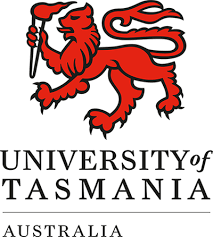

Food Futures in the Anthropocene: Place-Based, Just, Convivial
Contact: FoodFuturesAnthropocene@utas.edu.au
Deadline: Wed, 15 Jul 2020
With COVID-19 sweeping around the world, undoubtedly you are wondering whether our Conference, Food Futures in the Anthropocene, will be proceeding at the University of Tasmania, Launceston, from 8-10 November 2020.
At present, we remain hopeful that our Conference will be able to proceed and continue to closely monitor developments in Australia and worldwide.
The Call for Papers remains open and the new deadline for Abstract submission is now extended from May 1 to July 15.
We encourage you submit an abstract and assure you we will fully understand if you subsequently need to cancel due to further lockdowns, lack of funding, ongoing uncertainty or any other reason.
We sincerely hope that we will be able to meet in Launceston in November and that you all stay safe and healthy in the meantime.
For regular updates, please check our website: https://www.utas.edu.au/socialsciences/events/food-studies-conference
Emerging discourses of the Anthropocene and its critics constitute attempts to grasp a new understanding of reality: the deep and reciprocal enmeshment of daily human practices with Earth’s vital life-support systems. For scholars of food studies and systems, the planetary impacts of high-input monocultures, land clearing, food miles, labour exploitation, retail monopolies, unethical advertising, obesogenic environments and food waste are only some of the issues to be overcome to resolve the profound economic, ecological, social and cultural crises in the twenty-first century and realise a flourishing co-existence for ourselves and the species with whom we live and eat. Employing inter- and transdisciplinary methodologies and building on ‘circular’, ‘just’, ‘slow’, ‘local’, ‘convivial’, ‘healthy’ and ‘sustainable’ food concepts, the emerging discipline of food system studies is uniquely positioned to answer questions about the nature and meanings of such enmeshments as well as offering imaginative yet feasible solutions. How do we make sense of the food futures to come? What new ways of eating well and convivially are there? How can lessons from the past help us navigate increasingly uncertain food futures? What food governance arrangements—politics, policies, regulations—will overcome unconscionable inequalities and deliver food justice? How is and should food be represented in the media? These are just a few of the questions this conference will grapple with.
Situated in Northern Tasmania’s iconic, kanamaluka/Tamar Valley and the historic City of Launceston, Food Futures in the Anthropocene invites contributions that critically reflect on the nature of food systems that are socially, economically, politically, culturally and technically attuned to place, foster food security and justice, and serve to unite rather than divide communities through convivial food experiences. We are especially interested in papers that address the following themes:
- Histories of food and place
- Food media/mediating food
- Food regulation and governance
- Conventional and alternative food cultures
- Healthy and sustainable food systems
- Policy, politics and political economy of food
- Food security, justice and sovereignty
- Food literacy and education
- Indigenous food systems
- Convivial food systems
Abstracts for papers, panels, workshops and other presentations should be submitted to the Conference website by July 15l 2020. Postgraduate students are strongly encouraged to participate.
Organising committee:
Fred Gale (Social Sciences, University of Tasmania), Sandra Murray (Health Sciences, University of Tasmania), Kelly Donati (Food Studies, William Angliss Institute), Nick Rose (Sustain: The Australian Food Network), Rachel Ankeny (Humanities, Adelaide), Michelle Phillipov (Media Studies, Adelaide), Nicki Tarulevicz (History, University of Tasmania), Frieda Moran (History, University of Tasmania), Jenny Kaldor (Law, University of Tasmania), Anna Flittner (Biological Sciences, University of Tasmania), Alana Betzold (Sociology, University of Tasmania), Laura Ripoll González (Griffith Centre for Social and Cultural Research, Griffith University).











